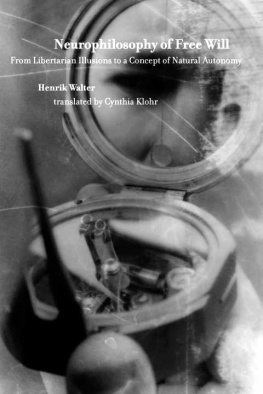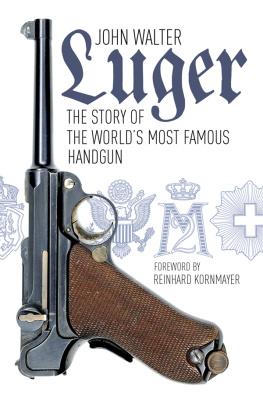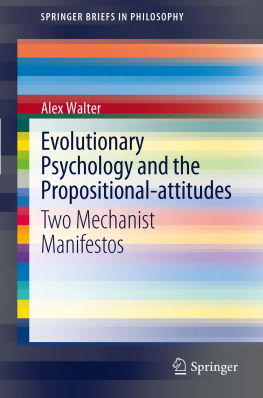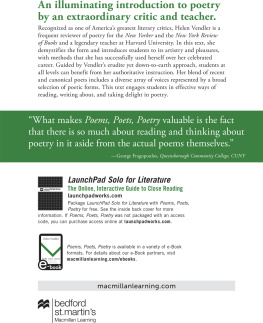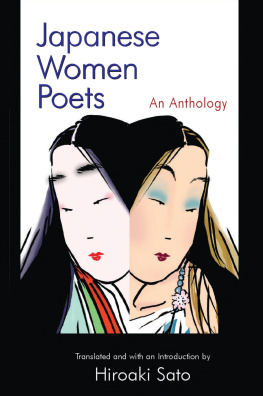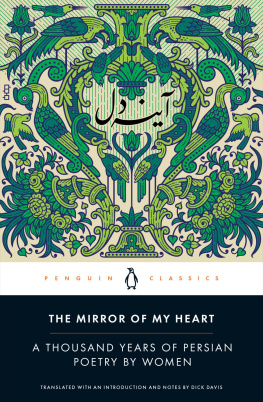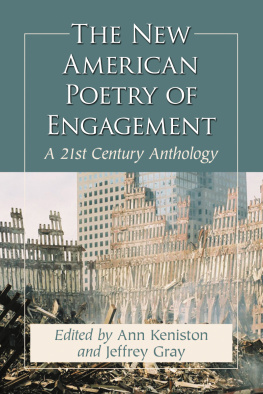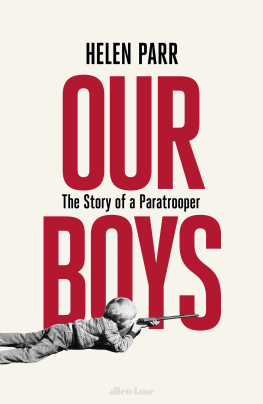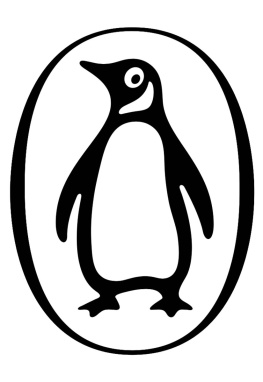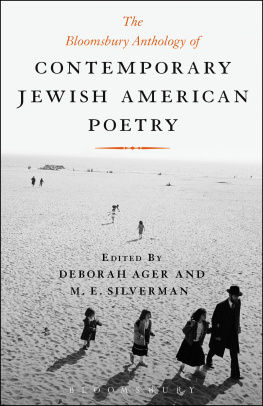Walter - The New Penguin book of First World War poetry
Here you can read online Walter - The New Penguin book of First World War poetry full text of the book (entire story) in english for free. Download pdf and epub, get meaning, cover and reviews about this ebook. City: London, year: 2006, publisher: Penguin Books Ltd, genre: Art. Description of the work, (preface) as well as reviews are available. Best literature library LitArk.com created for fans of good reading and offers a wide selection of genres:
Romance novel
Science fiction
Adventure
Detective
Science
History
Home and family
Prose
Art
Politics
Computer
Non-fiction
Religion
Business
Children
Humor
Choose a favorite category and find really read worthwhile books. Enjoy immersion in the world of imagination, feel the emotions of the characters or learn something new for yourself, make an fascinating discovery.

The New Penguin book of First World War poetry: summary, description and annotation
We offer to read an annotation, description, summary or preface (depends on what the author of the book "The New Penguin book of First World War poetry" wrote himself). If you haven't found the necessary information about the book — write in the comments, we will try to find it.
The New Penguin book of First World War poetry — read online for free the complete book (whole text) full work
Below is the text of the book, divided by pages. System saving the place of the last page read, allows you to conveniently read the book "The New Penguin book of First World War poetry" online for free, without having to search again every time where you left off. Put a bookmark, and you can go to the page where you finished reading at any time.
Font size:
Interval:
Bookmark:
 THE PENGUIN BOOK OF FIRST WORLD WAR POETRY
THE PENGUIN BOOK OF FIRST WORLD WAR POETRY
GEORGE WALTER was educated at the Universities of Leeds and Birmingham, and is currently Senior Lecturer in English at the university of Sussex. He has published widely on the literature of the First World War, including critical editions of Rupert Brooke, Wilfred Owen and Ivor Gurney. He is currently working on a critical study of Ivor Gurney and, in the longer term, critical study of First World War poetry.
PENGUIN BOOKS PENGUIN BOOKS Published by the Penguin Group Penguin Books Ltd, 80 Strand, London WC2R 0RL, England Penguin Group (USA) Inc., 375 Hudson Street, New York, New York 10014, USA Penguin Group (Canada), 90 Eglinton Avenue East, Suite 700, Toronto, Ontario, Canada M4P 2Y3 (a division of Pearson Penguin Canada Inc.) Penguin Ireland, 25 St Stephens Green, Dublin 2, Ireland, (a division of Penguin Books Ltd) Penguin Group (Australia), 250 Camberwell Road, Camberwell, Victoria 3124, Australia (a division of Pearson Australia Group Pty Ltd) Penguin Books India Pvt Ltd, 11 Community Centre, Panchsheel Park, New Delhi 110 017, India Penguin Group (NZ), 67 Apollo Drive, Mairangi Bay, Auckland 1310, New Zealand (a division of Pearson New Zealand Ltd) Penguin Books (South Africa) (Pty) Ltd, 24 Sturdee Avenue, Rosebank, Johannesburg 2196, South Africa Penguin Books Ltd, Registered Offices: 80 Strand, London WC2R 0RL, England www.penguin.com
This collection first published by Penguin Books as In Flanders Fields: Poetry of the First World War2004 Published under the current title with an updated Introduction in Penguin Classics 2006 1
Selection and editorial matter copyright George Walter, 2004, 2006 All rights reserved
The moral right of the editor has been asserted
Pages 3668 constitute an extension to this copyright page
Except in the United States of America, this book is sold subject to the condition that it shall not, by way of trade or otherwise, be lent, re-sold, hired out, or otherwise circulated without the publishers prior consent in any form of binding or cover other than that in which it is published and without a similar condition including this condition being imposed on the subsequent purchaser
ISBN-13: 9780141181905 ISBN-10: 0141181907 In Memory of Private William Job Packer The Royal West Kent Regiment 18891916
Looking across the English Channel, he saw that literature had been trodden into the mud by the jack-boot of the Prussian and feared a similar catastrophe would occur in Britain, even if actual invasion was averted. With the publics attention firmly fixed on the war and its progress, those branches of literature which are most delicate, admirable and original were already being dangerously neglected, and this woeful state of affairs would surely continue until peace was once more restored. Whilst the damage might not be permanent, the immediate future looked bleak: the book, he concluded, which does not deal directly and crudely with the complexities of warfare and the various branches of strategy will, from Christmas onwards, not be published at all. In fact the opposite turned out to be true, as Gosse would later ruefully admit. Nowhere is this explosion of creativity more evident than in the hundreds of thousands of poems written and published during the First World War. Within weeks of the German invasion of Belgium, The Times was being inundated by as many as a hundred metrical essays in a single day,
The First World War was, in a very real sense, the first total war: total in that no-one who lived through it could remain untouched by it. But where did Clutton Brocks poets come from? Like most of his fellow-commentators, he failed to address the question of what the historical and cultural circumstances were which led to Britain having such a reserve of untapped poetical potential throughout the four years of the war. Only Edmund Gosse seems to have some inkling: he wrote approvingly of Britain sending out for our national defence in this war a soldiery far more widely and deeply educated than has ever been the case before.years before the war resulted in a boom in both the demand for and the production of printed material during the war years, in particular in the kind of newspapers and magazines which provided so important an outlet for the majority of war poets. In an age when media was almost wholly print-based cinema was relatively in its infancy then poetry was, for most of Edwardian society, a part of everyday life. Contemporary poets such as Sir Alfred Austin, Rudyard Kipling and Henry Newbolt were read not merely for entertainment, but also for the lessons they imparted; as C. K.
Stead has noted, the definition of a major poet in this period was a man who expressed a sound philosophy in verse. If any reader tired of the articulation of Britains sense of its national and imperial identity which these writers supplied and few seemed to have done so for long then A. E. Housmans particularly English lyricism was on hand to satisfy other, more romantic longings. A commitment to accessibility and an emphasis on rhythm and rhyme were crucial elements in these poets work, which meant that it was both immensely popular with ordinary readers and, more crucially, offered a ready-made poetic model for the even the least talented of versifiers when war broke out. For the more literary minded, the emergence of the Imagist and Georgian movements in the years immediately prior to the outbreak of war offered more contemporary and more stimulating models of poetic expression.
Of the two movements, Imagism was the more calculated, seeking as it did to tap into the wave of self-conscious and the influence of both, to a greater or lesser degree, can be traced in much of the poetry written by the better-educated during the war.
Genuinely admired by ordinary readers, they were also critically acclaimed: It is impossible to shred up this beauty for the purpose of criticism. These sonnets are personaland yet the very blood and youth of England seem to find expression in them. They speak not for one heart only, but for all to whom her call has come in the hour of need and found instantly ready. A significant boost to their popularity came on Easter Sunday 1915, when the Dean of St Pauls Cathedral chose The Soldier as the text for his sermon, arguing that the enthusiam of a pure and elevated patriotism has never found a nobler expression and that, in time, Brooke would take rank with our great poets. Brooke, on active Three weeks later, he was dead. Despite dying from septicaemia and not from an enemy bullet, the extravagance of the obituaries which greeted his death Winston Churchill described him as all that one could wish Englands noblest sons to be coupled with the considerable popularity of his sonnets ensured that he rapidly became mythologized as Britains first poetic martyr of the war.
Font size:
Interval:
Bookmark:
Similar books «The New Penguin book of First World War poetry»
Look at similar books to The New Penguin book of First World War poetry. We have selected literature similar in name and meaning in the hope of providing readers with more options to find new, interesting, not yet read works.
Discussion, reviews of the book The New Penguin book of First World War poetry and just readers' own opinions. Leave your comments, write what you think about the work, its meaning or the main characters. Specify what exactly you liked and what you didn't like, and why you think so.

